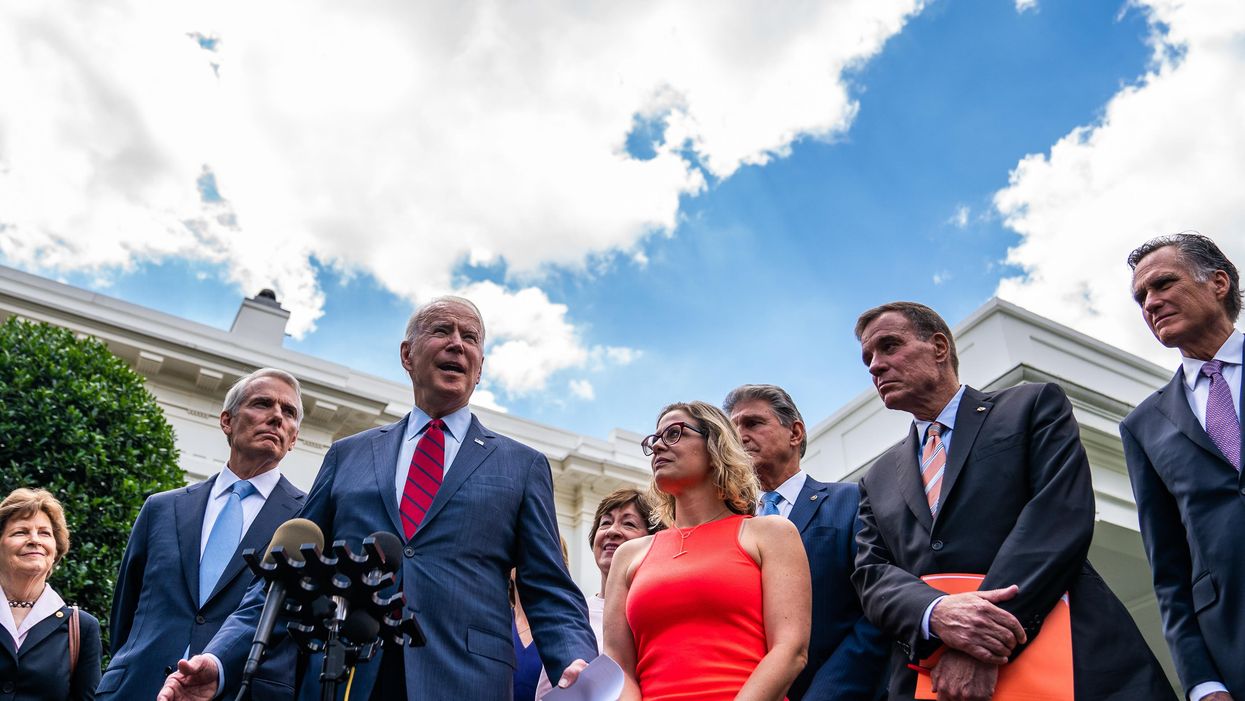While dysfunction is a common occurrence in Congress, this week finished with announcements on three bipartisan agreements.
Efforts to advance sweeping election reforms are stalled for now, but lawmakers have reached across the aisle to make progress on several other issues.
Here are three examples of recent bipartisan collaborations in Congress:
Infrastructure
On Thursday, President Joe Biden announced he and a bipartisan group of senators had reached an agreement on an infrastructure package. While this is welcome progress after weeks of negotiations, the legislation still faces a long and arduous road ahead.
The deal would invest $1.2 trillion in infrastructure over eight years — a slimmed down version of Biden's original $2 trillion plan. The new framework includes $109 billion for roads and bridges, $66 billion for rail, $65 billion for broadband, $55 billion for water infrastructure and $49 billion for public transit.
However, this infrastructure deal has one major string attached: a much more expensive investment in health care, child care, higher education and climate change programs. And it will be much harder to convince Republicans to support these progressive priorities.
"If this is the only thing that comes to me, I'm not signing it. It's in tandem," Biden said of the infrastructure deal.
Senate Democrats may be able to persuade 10 Republicans to join them on the infrastructure deal, but the other bill will likely only have a chance at passing through reconciliation.
Military sexual assault prevention
Republicans and Democrats in Congress have come together on two pieces of legislation aimed at combatting sexual assault and harassment in the military.
In the Senate, Democrat Kirsten Gillibrand of New York and Republican Joni Ernst of Iowa are leading the effort on a bill entitled the Military Justice Improvement and Increasing Prevention Act. It would remove prosecutorial decisions for serious crimes out of the military chain of command and instead put it under the purview of appointed prosecutors. The measure would also bolster training and education on sexual assault prevention. In addition to the two co-sponsors, 44 Democrats and 20 Republicans are signed on to the bill.
In the House, Democratic Rep. Jackie Speier of California and GOP Rep. Michael Turner of Ohio are collaborating on a bill named after Vanessa Guillén, a specialist in the U.S. Army who over a year ago was killed after reporting two instances of sexual assault at Fort Hood in Texas. Her death sparked calls for reform, like this legislation in Congress.
Police reform
More than a year after the police killing of George Floyd, a trio of Black lawmakers have reached the framework of an agreement on a law enforcement reform bill.
Republican Sen. Tim Scott of South Carolina, Democratic Sen. Cory Booker of New Jersey and Democratic Rep. Karen Bass of California announced their agreement on Thursday, but the details of the plan are not yet available.
"After months of working in good faith, we have reached an agreement on a framework addressing the major issues for bipartisan police reform," the three lawmakers said in a joint statement. "There is still more work to be done on the final bill, and nothing is agreed to until everything is agreed to. Over the next few weeks we look forward to continuing our work toward getting a finalized proposal across the finish line."
This legislation could be a catalyst for police reform at the federal level after the George Floyd Justice in Policing Act, which was passed by House Democrats in March, stalled in the evenly split Senate.




















